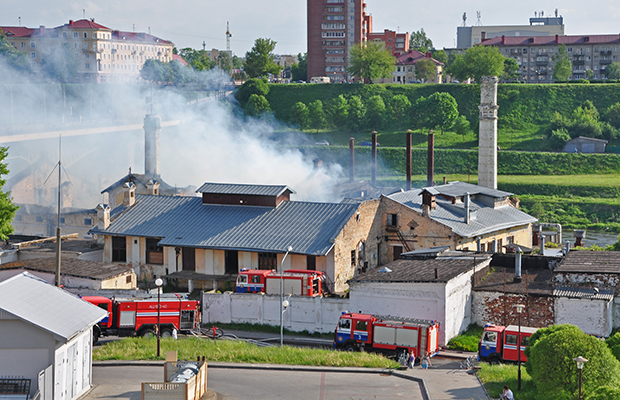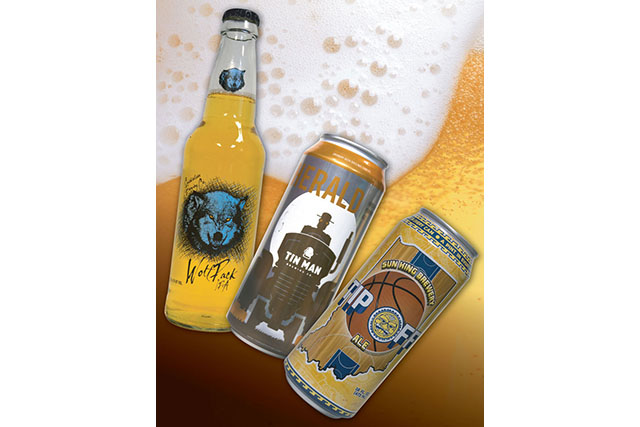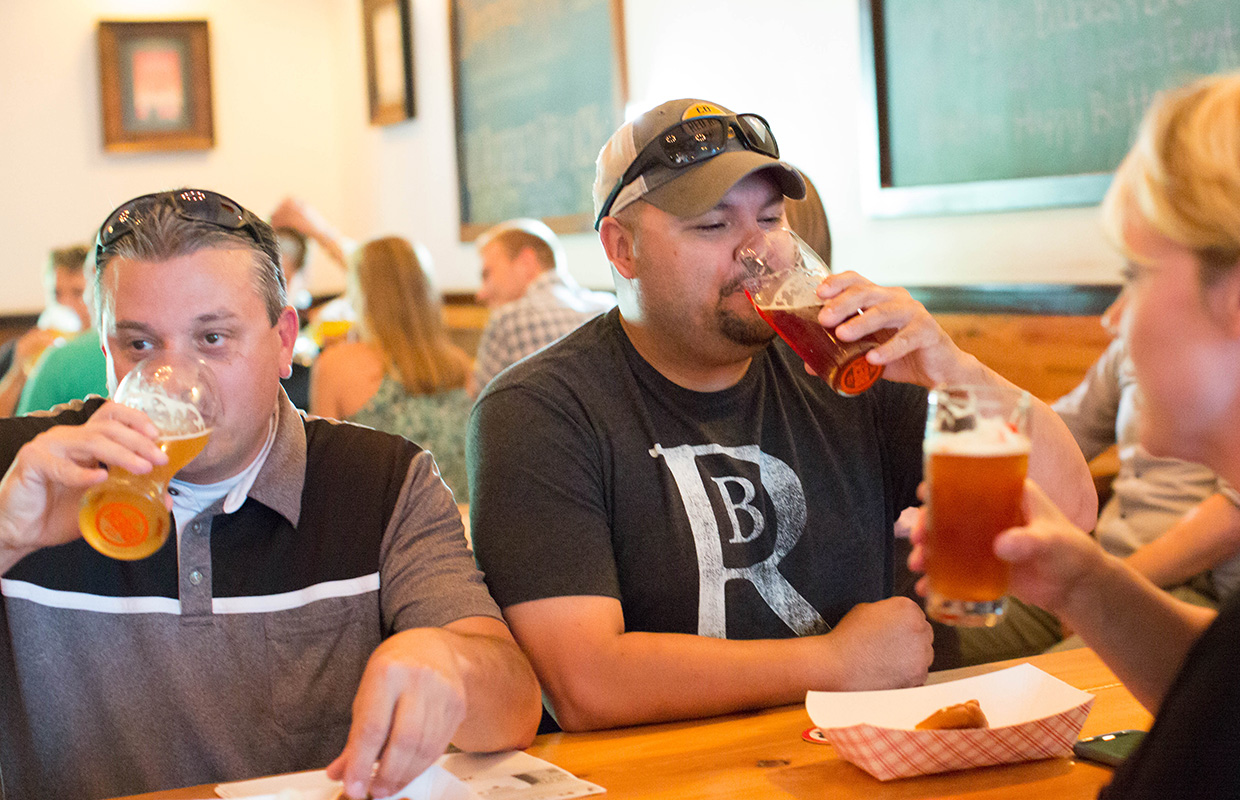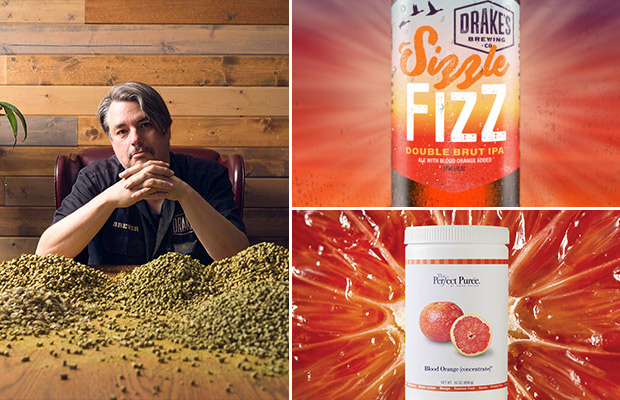
The Jim Beam warehouse fire and collapse in July 2019 was the latest in a long line of disasters that are a brewer’s worst nightmare. Losing inventory along with the resulting environmental, physical, and financial damages are not only horrifying to imagine but could ruin a craft brewery like yours.
However, the chance of it happening to you probably seems even less than the chance of being struck by lightning. It’s easy to put it out of your mind—especially when you have day-to-day brewing and other business responsibilities.
Unfortunately, if you aren’t aware of the regulatory requirements and protocols needed to maintain facilities, equipment, and safety, you could face other more significant dangers to your brewery.
A recent survey shows that only 1 in 4 breweries have conducted a hazard assessment of their business. Those hazards are as varied as beer types: from flammability and combustion dangers to slips, falls, and ergonomic instruction for lifting kegs. Any of these could have a significant impact on your brewery’s financial health with resulting expenses beyond what is covered by a general liability policy.
Find out if your brewery is in danger from the top hazards on the following risk checklist. Then review your situation with an insurance professional who specializes in risk management for craft breweries and get back to worry-free brewing.
The Craft Brewer’s Top Risk Prevention Checklist
Safeguard your inventory — and the five other most critical day-to-day business aspects of your craft brewery — by checking how prepared you are.
[ ] Yes [ ] No Inventory Protection:
Your inventory is liquid gold. It’s your hopes and dreams made tangible. And it’s the work of years that would be hard to replace. Keeping it safe is your number one priority. But how can you protect it from catastrophe?
Fortunately, you can implement some easy solutions to manage most of the risk to your stock:
- In addition to ensuring that your buildings have the proper alarms, controls, and sprinkler systems, storing aging stock away from the still is often overlooked. Whenever possible, keep it in a separate building or separate room from combustibles. That way, if there is a fire, there is less chance of damage to your inventory.
- If space or finances are a problem, a four-hour firewall is an economical option installed between the still and the tank. In case of a fire, the wall protects your inventory for up to four hours, giving time to bring the fire under control. It’s an affordable solution that can keep years of brewing from being destroyed.
Working with a risk management professional who has craft brewery experience can help you reduce this massive risk to your inventory.
[ ] Yes [ ] No Safety Procedures
While you may have a passion for IPAs, you probably don’t have a passion for safety regulations.
However, it’s your responsibility to keep your employees and visitors safe. According to a Reuters Report, four times as many safety violations happen at craft breweries than at larger breweries.
You may not know OSHA has standards that cover:
- Caustic chemicals
- Slips and falls
- Incorrect use of personal protective gear
- Proper cleaning and maintenance
- Incorrect keg maintenance
- And more
Even having the right kind of mats can make a safety difference.
And it’s not just your actual brewery; while it seems like a no-brainer to serve snacks along with your seasonal Saison tastings, there are food processing licenses and procedures you need to have and follow. Any areas patrons visit must also be part of a safety plan with established general housekeeping, cleaning, and sanitization practices (especially for restrooms or food prep areas).
It may seem daunting to ensure employee and visitor safety. Developing cleaning lists, procedures, and schedules can make it easier (and also dramatically lower the risk of contamination and injury) as will maintaining warranties and inspections on your equipment and following manufacturers’ instructions.
Insurance professionals with experience in the craft brewery niche can guide you through these processes and regulations, reduce risk, and set you up for success.
[ ] Yes [ ] No Building Maintenance and Upkeep
Just like other businesses and buildings, breweries need upkeep, too.
You don’t want to risk the integrity or safety of any of your brewery’s physical structures. Make sure you’re aware of local building codes and restrictions, especially if it’s an older structure that may not have been updated recently.
You’ll want to check:
- Licensing, codes, and warranties
- Roofing, leaks, and drainage
- Electrical updates
- Sewers and restrooms
- Windows, doors, and exits
- Fire suppression and sprinklers
- HVAC and Insulation
- Weight restrictions
- Loading docks
- Parking areas and accessibility
- Flooring (weakness, cracks)
- Structural support
Working with an insurance professional can make it easier to catalog the current status of your brewery’s building(s) and develop the procedures and schedule to keep it in code and up-to-date.
[ ] Yes [ ] No Product Recall
You’re proud of your porter, and you’ve done your utmost to get it to your customers in perfect condition. But sometimes, something goes wrong. Brews could just be mislabeled or, more seriously, contaminated. Either way, you need to remove your porter, fast.
Unfortunately, you may find that what’s just as bad as the recall is not having procedures in place to handle it. To manage this risk, you’ll need to:
- Determine the cause (such as broken glass or other foreign objects, pathogens, or shelf life)
- Identify where the product is
- Stop its use by notifying distributors, retail outlets, and the general public
- Plan the removal and disposal
- Develop and implement procedures to eliminate its reoccurrence
Fortunately, many of the procedures you’ll follow to ensure employee, visitor, and inventory safety and maintenance can help. It will also be critical to conform to the Good Manufacturing Practices as required by local regulations, including those outlined by the Food and Drug Administration (FDA).
Your insurance company can play a crucial role in developing the procedures to help you minimize loss, exposure, and contamination and handle a recall if it happens to you.
[ ] Yes [ ] No Equipment Breakdown Coverage
Craft brewery and craft distillery operations wouldn’t exist without their equipment. You use a variety of it to keep everything running every day. And, if you offer any kind of food, don’t forget about the kitchen equipment.
When something breaks, everything can come to a halt—ultimately costing you more than what’s lost to downtime. That’s why it’s another top risk for brewers. And, in addition to the obvious costs of parts and labor, malfunctioning equipment may also be a safety issue that could cause danger to employees and guests.
It’s essential to stay on top of equipment maintenance to lower the risk and expense of breakdowns. Your insurance company can help you with a system to track repairs, warranties, and schedules, along with coverages that help you with the cost of repairs.
[ ] Yes [ ] No Liquor Liability
You may have become a craft brewer because you loved your Blonde Ale. But chances are you also love working with like-minded people, the comradery of friends old and new, and the adventure of living your dream.
The flip side to all that is the last top risk: making sure consumption is in moderation.
You may be liable if someone in your establishment has too much to drink and they hurt themselves or others. Even if you only have a tasting room, it’s wise to have procedures in place for drink limits and to restrict serving an intoxicated visitor.
The good news is that you can work with your insurance carrier on an appropriate liquor liability coverage to lessen your exposure. They can also provide training resources and information to make it easier to handle and enforce restrictions. Then you can relax and enjoy what matters most to you about being a craft brewer.
How did you do?
All Yesses? Congratulations! It looks like you’re not just a brewmaster, but a riskmaster too. If you had some Noes on your checklist, don’t worry. You’ve taken the first step to identify where you may need a little help.
Talk to an insurance company like Philadelphia Insurance Companies (PHLY) with solid experience covering the unique needs of craft breweries and craft distilleries. With more than 55 years covering over 120 specialized niches, PHLY knows that one plan doesn’t fit all. Customers know that their plans are individually designed to match their situation—not other small businesses or even other breweries. When combined with the risk management services PHLY provides at no cost, it is a partnership that truly lets customers focus on what they do best, while PHLY takes care of all of the rest.
In fact, even if you have all six Yesses on your checklist, it’s worth exploring what else PHLY can help you with or learning about other risk management techniques.
Find out more about craft brewery insurance here. Then relax and get back to brewing the Dubbel of your dreams.






Be the first to comment